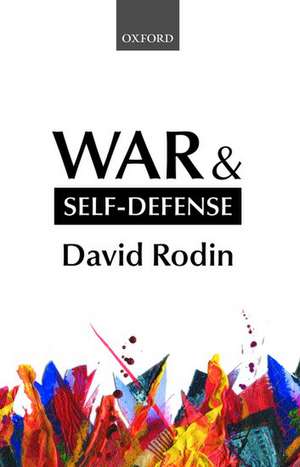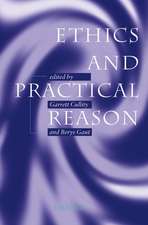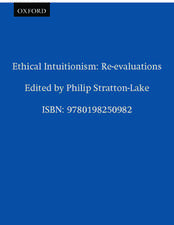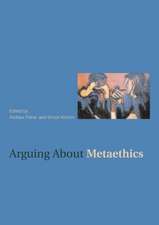War and Self-Defense
Autor David Rodinen Limba Engleză Hardback – 17 oct 2002
| Toate formatele și edițiile | Preț | Express |
|---|---|---|
| Paperback (1) | 293.36 lei 31-37 zile | |
| OUP OXFORD – 25 noi 2004 | 293.36 lei 31-37 zile | |
| Hardback (1) | 315.56 lei 31-37 zile | |
| OUP OXFORD – 17 oct 2002 | 315.56 lei 31-37 zile |
Preț: 315.56 lei
Preț vechi: 407.38 lei
-23% Nou
Puncte Express: 473
Preț estimativ în valută:
60.39€ • 62.82$ • 49.86£
60.39€ • 62.82$ • 49.86£
Carte tipărită la comandă
Livrare economică 03-09 aprilie
Preluare comenzi: 021 569.72.76
Specificații
ISBN-13: 9780199257744
ISBN-10: 0199257744
Pagini: 232
Ilustrații: 3 figures
Dimensiuni: 145 x 223 x 18 mm
Greutate: 0.38 kg
Editura: OUP OXFORD
Colecția OUP Oxford
Locul publicării:Oxford, United Kingdom
ISBN-10: 0199257744
Pagini: 232
Ilustrații: 3 figures
Dimensiuni: 145 x 223 x 18 mm
Greutate: 0.38 kg
Editura: OUP OXFORD
Colecția OUP Oxford
Locul publicării:Oxford, United Kingdom
Recenzii
required reading for anyone with a reflective interest in these issues. It is clearly and shrewdly argued throughout, insightful, provocative, and elegantly written.
... important and imaginative study ... Rodin's elegant trashing of the just-war tradition will provoke a wide response.
David Rodin argues brilliantly that individual self-defence cannot provide a morally coherent justification for "national-defense", and in the process offers a systematic rejection of the just-war tradition.
Rodin's challenges are chilling reminders that use of armed force even in presumed self-defense can be morally problematic.
... this well-written book raises an immense number of problematic and important questions and there is much to learn from it.
In dialectical and thorough fashion, Rodin criticizes a number of traditional justifications for national defense.
Rodin's discussion of war and of self-defence seeks to drive a wedge between the two ideas. The first part of the book presents a robust account of the moral justification for killing in self-defence. The second part argues, convincingly in my view, that waging war cannot be morally justified as a form of self-defence.
[Rodin's] critique of the rights-based theory of war as self-defence should be required reading for anyone concerned with questions about the morality of war. And in the current state of the world, that ought to mean everyone.
Nothing could be more timely ... than a careful reconsideration of the relation between war and the self-defense of citizens. David Rodin's War and Self-Defense is everything such a book should be: a careful and learned exploration of the topic that resolves some long-standing issues while raising new questions and advancing new proposals for how to think about war. "A dispiriting level of confusion is often evident in both popular and philosophical-legal thought on the justice of war," he remarks midway through his study (p. 126). Rodin's is just the sort of work we need to address this problem. It will be a starting point for discussion of these topics in the future.
... illuminating and provocative.
In War and Self-Defense David Rodin uncovers many flaws of current thinking about war. Rodin correctly points out that the justification of national self-defense goes beyond the justification of individual self-defense. He accurately rejects the standard notion of moral symmetry--the accepted view that both just and unjust warriors can permissibly kill enemies as long as they observe the laws of war. Rodin vindicates the right view: if a war is unjust, each and every injury caused by the unjust warrior is a criminal act. There are no morally justified killings by those who fight unjust wars. Further, Rodin rightly rejects various holistic theories of self-defense. Last but not least, he correctly denounces . . . the idea that tyrannical governments are worth defending against interventions aimed at deposing them because they are protected by the principle of sovereignty.
At both the individual and the national level, Rodin puts forward a powerful case for radically rethinking some long-standing beliefs.
... if you want an original, hugely intelligent ... understanding of the just war principle, with fascinating spins on war guilt and when it is right to kill an enemy ... turn to David Rodin's War and Self-Defense.
... remarkable and original.
One of the few moral ideas about warfare that are generally agreed is that the use of armed force can be justified in the cause of national self-defence. This aspect of traditional Just War doctrine is widely accepted by public opinion and is enshrined in international law, including the Charter of the United Nations. David Rodin's remarkable and original book mounts a powerful attack on this idea ... David Rodin's book demands serious and uncomfortable thought not only about the specific question of national self-defence and its morality, but about the role of moral ideas in international conflict altogether.
... important and imaginative study ... Rodin's elegant trashing of the just-war tradition will provoke a wide response.
David Rodin argues brilliantly that individual self-defence cannot provide a morally coherent justification for "national-defense", and in the process offers a systematic rejection of the just-war tradition.
Rodin's challenges are chilling reminders that use of armed force even in presumed self-defense can be morally problematic.
... this well-written book raises an immense number of problematic and important questions and there is much to learn from it.
In dialectical and thorough fashion, Rodin criticizes a number of traditional justifications for national defense.
Rodin's discussion of war and of self-defence seeks to drive a wedge between the two ideas. The first part of the book presents a robust account of the moral justification for killing in self-defence. The second part argues, convincingly in my view, that waging war cannot be morally justified as a form of self-defence.
[Rodin's] critique of the rights-based theory of war as self-defence should be required reading for anyone concerned with questions about the morality of war. And in the current state of the world, that ought to mean everyone.
Nothing could be more timely ... than a careful reconsideration of the relation between war and the self-defense of citizens. David Rodin's War and Self-Defense is everything such a book should be: a careful and learned exploration of the topic that resolves some long-standing issues while raising new questions and advancing new proposals for how to think about war. "A dispiriting level of confusion is often evident in both popular and philosophical-legal thought on the justice of war," he remarks midway through his study (p. 126). Rodin's is just the sort of work we need to address this problem. It will be a starting point for discussion of these topics in the future.
... illuminating and provocative.
In War and Self-Defense David Rodin uncovers many flaws of current thinking about war. Rodin correctly points out that the justification of national self-defense goes beyond the justification of individual self-defense. He accurately rejects the standard notion of moral symmetry--the accepted view that both just and unjust warriors can permissibly kill enemies as long as they observe the laws of war. Rodin vindicates the right view: if a war is unjust, each and every injury caused by the unjust warrior is a criminal act. There are no morally justified killings by those who fight unjust wars. Further, Rodin rightly rejects various holistic theories of self-defense. Last but not least, he correctly denounces . . . the idea that tyrannical governments are worth defending against interventions aimed at deposing them because they are protected by the principle of sovereignty.
At both the individual and the national level, Rodin puts forward a powerful case for radically rethinking some long-standing beliefs.
... if you want an original, hugely intelligent ... understanding of the just war principle, with fascinating spins on war guilt and when it is right to kill an enemy ... turn to David Rodin's War and Self-Defense.
... remarkable and original.
One of the few moral ideas about warfare that are generally agreed is that the use of armed force can be justified in the cause of national self-defence. This aspect of traditional Just War doctrine is widely accepted by public opinion and is enshrined in international law, including the Charter of the United Nations. David Rodin's remarkable and original book mounts a powerful attack on this idea ... David Rodin's book demands serious and uncomfortable thought not only about the specific question of national self-defence and its morality, but about the role of moral ideas in international conflict altogether.
















